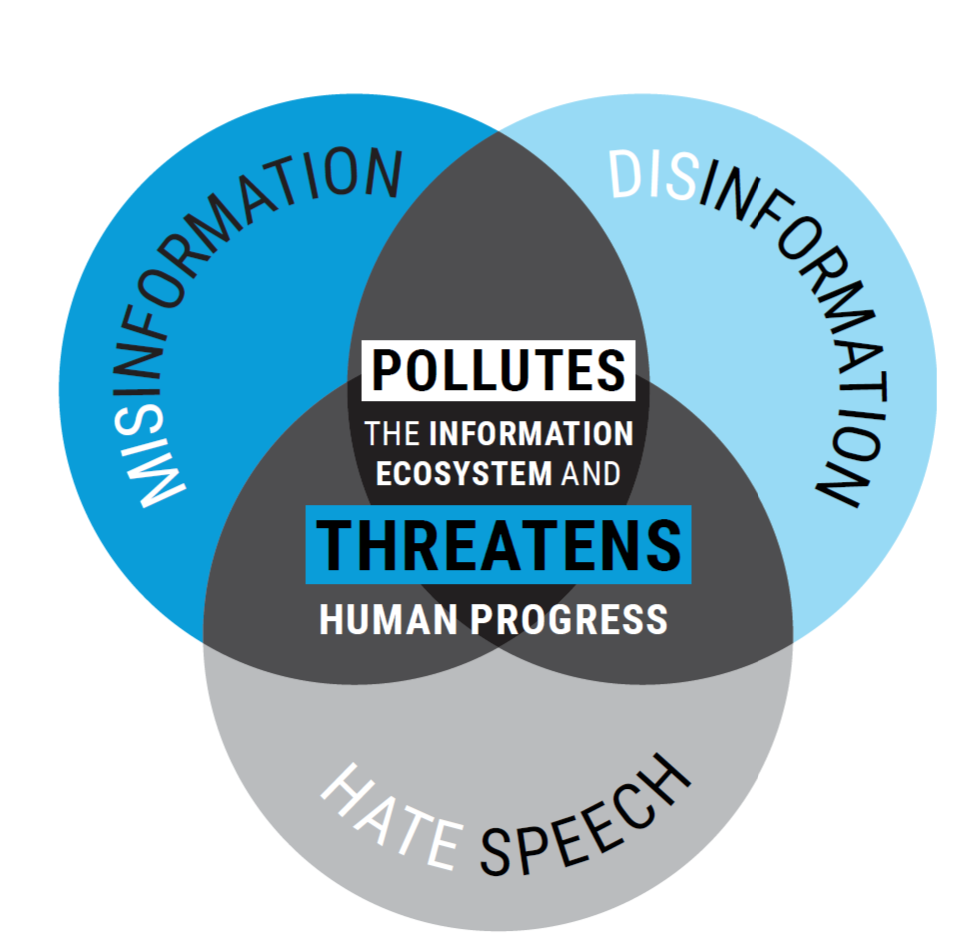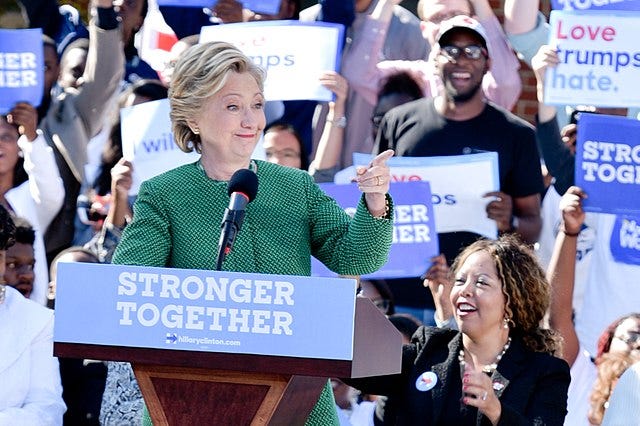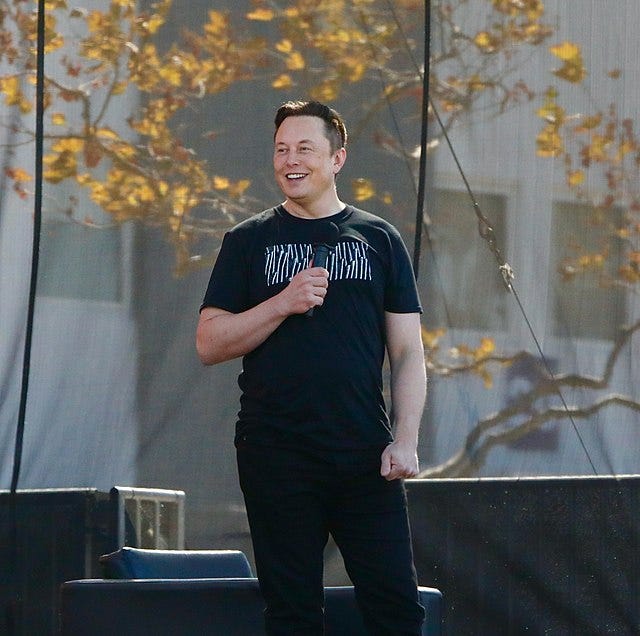Hypocritical Fight against Misinformation
The UN fights it, Barack Obama fights it, the mainstream media fights it – but the fact is that the fight against misinformation and disinformation is a great example of hypocrisy.

The UN is concerned. According to a report released recently by UN Secretary-General António Guterres, disinformation, misinformation and hate speech “pollute the information ecosystem and threaten human progress". Among other things, it hampers the spread of climate science. As an example, the authors of the report refer to the use of hashtag #ClimateScam. While in the first half of 2022, the hashtag was used on Twitter around 2,700 times a month, its use rose to around 80,000 times in July and 199,000 times in January 2023. The report worries that such widespread doubt about the climate emergency is "delaying urgently needed action to ensure a liveable future for the planet".
Examples of hypocrisy
The reasons why this doubt grew so strongly during this period are not mentioned in the report. However, charts actually point to the COP27 climate conference that took place in Sharm el Sheikh, Egypt, in November 2022, where, as was the case with all the previous climate summits, politicians and big businessmen from around the world flew in on their private jets to discuss how to limit the movement of ordinary people in pursuit of reduced CO2 emissions. If someone were sincere in their intent to curb carbon emissions, couldn’t they choose to travel to a foreign country by a regular airline and thus save significantly on their personal footprint? So what might the Twitter hashtag #ClimateScam actually mean in this context? Is it really anti-science? Or is it perhaps about hypocrisy on the part of those in power and those close to them? It is precisely the latter claim that many Twitter users are now bringing up. Here's a random example of #ClimateScam – a person points out that VIPs arrived to Egypt to discuss CO2 emissions aboard as many as 400 private jets:

The same theme of using private jets can similarly be found under the same hashtag when the lifestyles of individual billionaire climate activists are discussed. For example, in February this year, a user posted a fragment of a BBC interview with Bill Gates on Twitter, in which the journalist asked how saving the climate and the fact that Gates constantly flies around the world in his private jet were compatible. Gates replied that he is allowed to do so because he invests a lot of money in Climeworks, a company that is capturing CO2 from air and turns it into rocks, and other similar ventures. So the logic here is ironclad – a man who invests billions in a new line of business, the success of which depends directly on the success of transnational command-and-control chain around the world in the very same field, must be allowed to use his private jet to do his personal lobbying in promoting the ideas related to his business ventures, all the while telling other people they should not fly. Is this a proper place to use the hashtag #ClimateScam or not?

As another example, the luxury lifestyle of a climate activist and actor Leonardo DiCaprio – with his fuel-guzzling luxury yachts, mega-mansions and, once again, private jets – is highlighted under the same hashtag:

Misinformation or inconvenient truth?
Of course, it is not possible to make overarching generalisations of hypocrisy just from three arbitrary posts with the same hashtag. There is certainly a lot of scientifically based, as well as unsubstantiated criticism employed under the same keyword. As always in life – people think different things and at different levels, based on their qualifications. However, this much of the UN report may well capture the truth – it is pointing out that such hypocrisy does not contribute to the introduction of measures that restrict people's lives. And the question is, eventually, whether the aim is to prevent misinformation or to suppress inconvenient information?
The same UN report also highlights the spread of so-called Covid-19 misinformation about the virus itself, the measures to combat its spread and the vaccines. "Many victims of COVID-19 refused to get vaccinated or take basic health precautions after being exposed to mis- and disinformation online," it says. What kind of so-called mis- and disinformation this is about, is left unspecified. However, the statement ignores plain facts – the serious side effects of Covid-19 vaccines (there is a growing body of research on this, e.g. here), the ineffectiveness of these vaccines against the disease itself (a recent study, e.g. here), and the calculations by Stanford University medical professor and renowned epidemiologist John P. Ioannidis that the real pre-vaccination infection fatality rate (IFR) for the 0-69 age group was 0.095%.
Obama wants 'digital fingerprints' to fight misinformation
In actuality, the fight against the spread of misinformation is being fought all around by a similar bending of truth. It is not really a fight against misinformation, but the suppression of correct facts that do not correspond with the aims of the powerful. Former US President Barack Obama is one of the figureheads in fighting misinformation. Recently, he expressed concern about its spread in an appearance on a CNN podcast. "All the problems we had with misinformation before, this next election cycle will be worse. And the need for us, for the general public, I think is to be more discriminating consumers of news and information, the need for us to over time develop technologies to create watermarks or digital fingerprints, so we know what is true and what is not true. There's a whole bunch of work that's going to have to be done there," he said.
If the second half of the statement about "digital fingerprints" gives chills – what does it even mean? – the first half on the problems of election cycle, spoken, as it feels, with tongue in cheek, is once again a glaring example of hypocrisy. When it comes to spreading disinformation during the US presidential election, the Democratic candidate Hillary Clinton has been particularly notable for having commissioned a report on her opponent Donald Trump from UK ex-spy Christopher Steele during the 2016 presidential election, which was then used to 'expose' Trump's Russian connections for some time afterwards. The only thing is that the dossier was made of lies that have since been refuted many times over – a subject we have also touched on briefly in one of our news reviews.

And in 2020, when Trump's opponent in the presidential election was the current President Joe Biden, social media companies and some media outlets prevented the spread of material that could have been damaging to Biden. In October 2020, The New York Post published an article based on emails and documents found on Biden's son Hunter Biden's laptop that linked Joe Biden to influence peddling towards Ukraine and China. Various techniques were used to suppress the story and it was quickly declared a Russian intelligence operation, according to a joint statement by 51 security experts, but some time later other publications had to take turns to acknowledge the veracity of the information. The Twitter files also revealed the fact that the US security authorities had previously processed social media companies and informed them that an "hack and leak operation" was about to take place concerning Hunter Biden and advised them to limit its spread. Twitter did not allow the link to the article to be posted. Facebook did, but similarly restricted its distribution. In other words, the establishment and social media companies, as well as most of the press, were in fact obstructing the dissemination of truthful information. We've written more about the Hunter Biden laptop story in our overview of Twitter files.
Journalism in the fight for and against the facts
However, all this is not an issue for Obama, who says he is worried about the spread of misinformation. Just as it is not a problem for the Trusted News Initiative (TNI), launched by the BBC in 2019. "Major news and tech organisations will work together to protect their audiences and users from disinformation, particularly around moments of jeopardy, including elections," the BBC announced in September 2019 at the launch of the new movement. In addition to the BBC, TNI's members include many prominent media outlets from around the world – The Wall Street Journal, AFP, Thomson Reuters, Financial Times, European Broadcasting Union (EBU), The Washington Post, etc., among others. Amongst the tech giants, all the big ones are involved – Microsoft, Twitter, as well as Facebook and Instagram owner Meta.
In March 2020, they agreed on the need to create an "Early Warning System" – “a system so organisations can alert each other rapidly when they discover disinformation which threatens human life or disrupts democracy during elections. The emphasis will be on moving quickly and collectively to undermine disinformation before it can take hold," the objective was described. BBC director at the time, Tony Hall, commented that this was being done out of “an urgent sense of responsibility to give everybody the very best, most accurate information, we can during this time of crisis". As we can understand, the Covid crisis had already begun, and this was also noted by Hall. "These are challenging times for each and every one of us. We'll do everything we can, working together, to stop disinformation about Coronavirus in its tracks," he added.

In retrospect, it must again be acknowledged that the accuracy of factual information about the coronavirus has left much to be desired in the mainstream press over the past three years.
Journalism credibility in decline
Alongside the launch of the wider network, the BBC itself has been engaged in targeting mis- and disinformation since 2017, when it set up its fact-checking unit. Interestingly, however, the BBC's own credibility in the eyes of the public plummeted at around the same time – from 75% to 55% between 2018 and 2022. Similarly, the credibility of other mainstream channels is also falling in the eyes of the public. In the UK, only two out of ten people feel that news journalism is independent of political influences and government.
The BBC appears to be looking for a solution to the worrying statistics with the next fact-checking unit which they have dedicated to spotting and debunking fakes in online video content. Yet in reality, could it be that the fact-checking side of their operation should actually be reduced and they should take up again what journalism should be and has been mostly about – exercising the fourth estate, which asks the powers that be sharp and critical questions?
However, if the media itself acts in a way that suits the circles of power perfectly well, takes the front line in the fight against “misinformation” – i.e. not really fighting misinformation, but information the power declares to be false – it will also be easier for the circles of power to create laws to directly prevent the dissemination of information they see as inappropriate. Europe is an excellent example of this – the Digital Services Act, adopted last year in the European Union, was cited as a model by Obama in a speech last year, and was similarly seen as a positive example of internet regulations by the same UN report.
Europe restricts free speech
The regime, which will come into force at the start of next year, will oblige social media companies to remove "illegal" content quickly, no less when requested by the governments. Among other points, "hate speech" will also be listed as content that needs to be removed quickly. Companies can be fined up to 6% of their global turnover for infringements. This could turn into huge sums for global companies – e.g. nearly seven billion dollars for Meta, according to the company's turnover last year.
The act, which will come into force at European level, is largely modelled after a similar law in Germany. The problem is, however, that because of the broad scope of interpretation, it is difficult to define which content is 'hate speech' or otherwise 'illegal', so commercial social media companies are more likely to remove anything that users complain about or that looks suspicious, to avoid hefty fines. In any case, Germany has not benefited from restrictions on free speech – we've written on what they've achieved there.
In any case, it is clear that many European politicians cannot wait for the new order. As we pointed out in our news round-up a few weeks ago, both the French Digital Minister Jean-Noël Barrot and the French Internal Market Commissioner Thierry Breton are already waiting for the opportunity to take a swipe at Twitter, which is owned by Elon Musk, a proponent of free speech. Twitter has recently withdrawn from the European Union's voluntary agreement to combat misinformation. "Twitter, if it repeatedly doesn’t follow our rules, will be banned from the EU," Barrot commented. Breton, too, made no secret of the fact that he is already looking forward to the Digital Services Act: "You can run, but you can't hide. Our teams are ready for enforcement."

In the context of all this widespread restriction of freedom of expression under the banner of "fighting misinformation", the new UN policy document is less of a surprise than a predictable and logical continuation. As Guterres himself put it at the very beginning of his report, such issues need to be moved forward swiftly and internationally: "The challenges that we are facing can be addressed only through stronger international cooperation. The Summit of the Future, to be held in 2024, is an opportunity to agree on multilateral solutions for a better tomorrow, strengthening global governance for both present and future generations."
Freedom Research has published an in-depth analysis (Part 1 and Part 2) on how the pretext of fighting "hate speech" and "disinformation" was used to restrict freedom of thought and the free expression of scientists, doctors and journalists in both regular and social media during the Covid-crisis. In addition to Germany, mentioned earlier, we have also looked at the consequences of a so-called "fight against hate speech" and its criminalisation in France, Norway and Finland.




